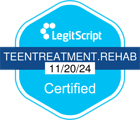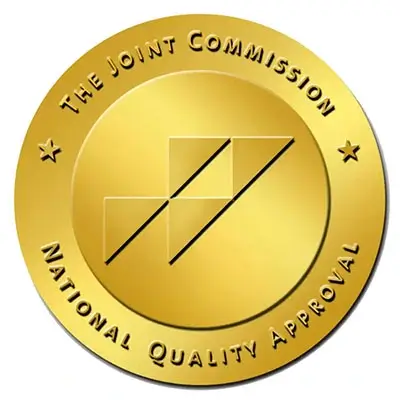Recovery from a substance addiction takes courage, commitment, and support. Whether you or someone you care about is struggling with an alcohol use disorder or a drug addiction, change is possible. Let’s walk through the ins and outs of breaking an addiction and choosing a sober future.
How Long Does It Take to Break an Addiction?
Breaking an addiction doesn’t have a set amount of time. Each person’s timeline can vary, depending on things like the type and length of addiction and other personal circumstances. It’s vital to understand that a break in an addiction doesn’t mean healing is done. Recovery is lifelong, but the most intense phase is roughly about 90 days.
Addiction Cycle
To identify and break the cycle, you or your loved one need to understand it. Here are the stages:
- Initial use: Trying the substance for the first time
- Abuse: Using substances more often, seeking the high
- Tolerance: Needing more and more to get the same effect as before
- Dependence: Adapting to the substance, causing physical changes
- Addiction: Not stopping even if continued use harms you or loved ones
- Relapse: Returning to use after a period of being “clean”
Types of Addiction
Addiction can take many forms, from substances to behaviors, like gambling. Some of the most common types, though, are substance-based:
Opioid
Opioids are highly addictive, like prescription painkillers and heroin. They alter brain chemistry, making it harder to quit without professional help. Due to the intense withdrawal symptoms, qualified recovery support is recommended.
Meth
Methamphetamine, a stimulant, typically hooks individuals quickly after use. It spikes dopamine (a pleasure chemical) in the brain, making it harder to feel these feelings naturally. Long-term use can result in severe health problems, like cognitive struggles.
Cocaine
Cocaine gives a short but intense high, stimulating the brain’s reward center. Because individuals who use cocaine seek this euphoric feeling, a dangerous cycle of addiction often occurs. Cocaine use can lead to cardiovascular problems and poor mental health.
Alcohol
Despite being legal, alcohol can be just as addictive as illegal substances. It affects brain chemistry and can lead to physical dependence with continuous use. Alcohol addiction can be harmful to health, relationships, and general quality of life.
Methods for Quitting an Addiction

Quitting an addictive substance can look different from person to person. No matter the method, it’s best to explore your options with supervised professional input to ensure safety. Typical approaches for quitting include:
- Cold Turkey: Stopping suddenly without weaning off a substance. This can be dangerous for some addictions because of difficult withdrawal symptoms.
- Change Your Surroundings: Removing reminders of your addiction. This can help lower temptation, especially during the early stages.
- Tapering: Gradually reducing use over time. This can help manage withdrawal symptoms in a more controlled way.
- Medically Assisted: Using medications to ease withdrawal and cravings. Often used for opioid addiction, this is only recommended under medical supervision.
- Therapy: Working with a counselor to address root causes and develop coping skills. Proven and innovative practices in a tailored treatment can help.
- Support Groups: Joining groups like Alcoholics Anonymous or Narcotics Anonymous for support. Individuals can learn from others in similar situations.
Wellness and Spirituality in the Addiction Recovery Process
Often, for better chances at a sustainable recovery, holistic approaches are the go-to. Treating more than just the symptoms can help heal the mind, body, and spirit, promoting lasting recovery. Helpful wellness methods include:
- Meditation and Mindfulness: These practices help reduce stress and improve focus. Connecting with yourself this way encourages healthier coping skills.
- Exercise: Regular physical activity boosts overall health. Healing your body can also help enhance your overall mental well-being.
- Nutrition: Eating well supports your body’s recovery process. Removing one unhealthy substance but not getting the nourishment you need can slow healing.
- Art Therapy: Expression through art can help with processing difficult emotions. Creativity mentally stimulates and offers a healthy outlet to quiet cravings.
- Music Therapy: Creating or listening to music can be calming and uplifting. Music is also a great tool to help individuals focus on recovery.
Relapse and Getting Back on Track
Relapse shouldn’t be seen as the end of the road. Don’t see it as a defeat, but rather a chance to exercise great resilience. If you experience a relapse, try the following:
- Don’t Beat Yourself Up: Relapse is a normal part of the process for many.
- Seek Help Immediately: Call your sponsor, therapist, or a trusted friend.
- Attend a Support Group Meeting: Be open and accept encouragement.
- Learn From It: Identify what triggered the relapse and how to avoid it.
- Recommit to Your Recovery: Your therapist can help adjust your approach to increase your chances of maintaining sobriety.
A relapse doesn’t erase your progress; it’s a stumbling block. Recovery can still be a part of your journey, even after a relapse.
Addiction Recovery Care at The Hope Institute

At The Hope Institute in NJ, we understand that recovering from an addiction is no easy task. We offer comprehensive, holistic care to support you, using personalized treatment plans and a blend of therapies. This ranges from 12-step techniques to aftercare services, ensuring you’re supported throughout recovery.
If it’s not you who needs our help, learn how to help your partner overcome a drug addiction. We can guide you or your loved one through every step. Reach out to us at (855) 659-2310 to find out more about our addiction services and build your healthier future.


